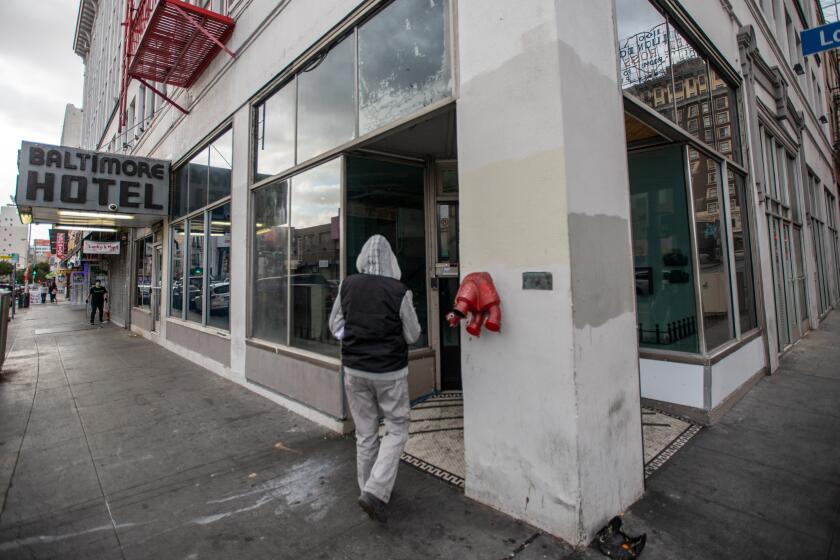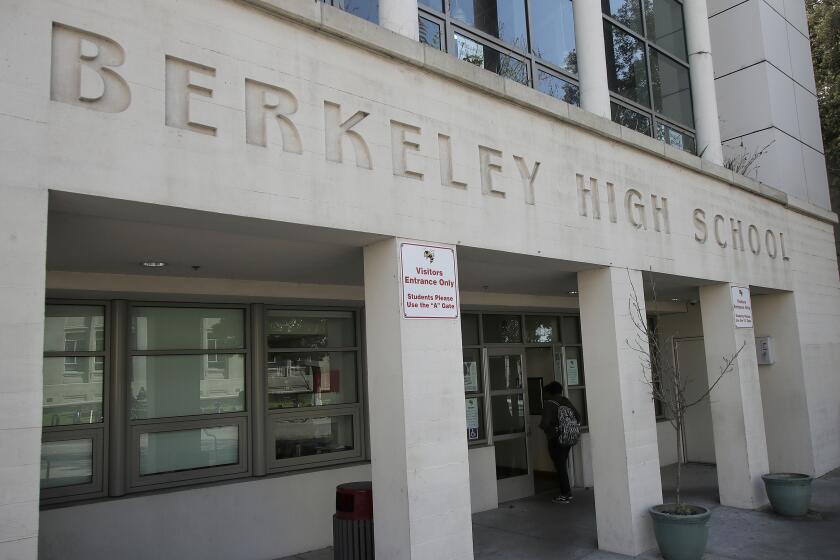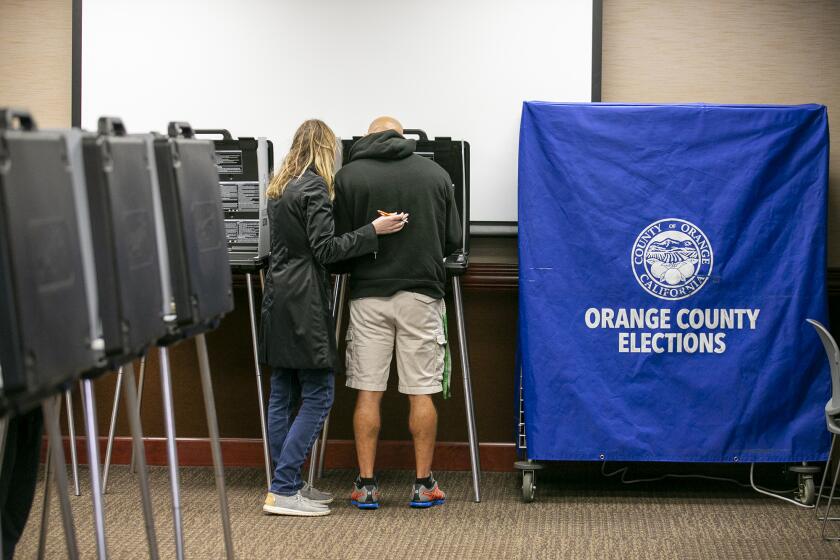L.A. moves to shut pot shops
A fresh effort to close down illegal medical marijuana dispensaries in Los Angeles is underway, this time led by new City Atty. Mike Feuer.
The city’s legal team has moved to shut down 38 pot shops operating outside the mandates of voter-approved Measure D, Feuer told reporters at a Friday news media gathering. The ordinance, approved in May by 63% of voters, calls for a sharply reduced number of pot shops, and taxes those found to be operating legally.
Feuer said an additional 42 dispensaries have closed on their own since Measure D took effect in July. That’s a small portion of the roughly 850 dispensaries believed to be operating illegally. Measure D only allows the 134 that opened before a moratorium was attempted in 2007.
But the city attorney pledged that his office will be filing new prosecutions every week. In office since July 1, Feuer said the actions mark a “new day” for medicinal marijuana regulation in Los Angeles.
“We’re going to see a major difference in the way that operators and property owners perceive the city,” he said. “They are going to accurately perceive us as moving effectively and systematically to assure that the will of the voters is, in fact, effectuated.”
Under Measure D, both pot shop operators and landlords leasing them space are subject to prosecution if they don’t meet the law’s requirements. Dozens of shops shut down on their own after Feuer’s office sent out letters informing dispensaries of the new rules.
Property owners face the same penalties as the operators: For every misdemeanor count, they face up to $1,000 in penalties and six months in jail. No operators or landlords have been jailed or required to pay fines yet, although one owner reached a plea agreement with the city, Feuer said.
More than 100 pot outlets that meet the voter-approved criteria for continuing to operate won’t be prosecuted, Feuer said. But if they are within 600 feet of a park, a school or a child-care facility, they will have to move, he said.
State and local laws regulating dispensaries conflict with the U.S. Justice Department’s stance that marijuana is an illegal drug that cannot be sold, even for medicinal purposes. Feuer said his office has “been in contact” with federal authorities but declined to say if any coordination is taking place between the agencies.
Feuer said city lawyers are attempting to provide the balance intended by Measure D, which sought to ensure access to medical marijuana for chronically ill patients but reverse what had become a proliferation of shops.
City officials have spent years struggling to regulate medical marijuana without restricting access to those who need it. Despite the moratorium imposed in 2007, shops continued to open. Subsequent attempts to set a cap on the number of shops and then ban them altogether failed. Dispensary operators fought back with lawsuits and their own unsuccessful voter measures.
Measure D helped clarify the debate, the city attorney said, setting standards for legal operations. Thus far, the city prosecutions haven’t been challenged legally, he said.
David Welch, an attorney representing several dispensary operators, said his clients have filed lawsuits in federal court challenging portions of the city law. But they have not yet been served on the city, he said.
“We want those dispensaries to be recognized as meeting the requirements of Measure D,” Welch said.
--
catherine.saillant@latimes.com
More to Read
Start your day right
Sign up for Essential California for news, features and recommendations from the L.A. Times and beyond in your inbox six days a week.
You may occasionally receive promotional content from the Los Angeles Times.







